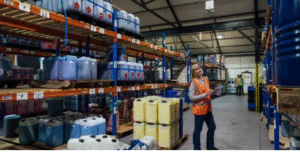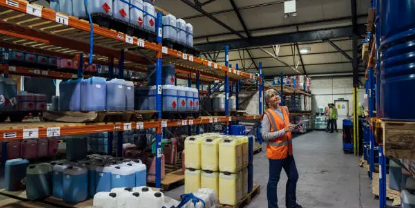In today’s industrial landscape, Australian businesses face mounting challenges in managing hazardous chemicals safely and effectively. The imperative to protect workers, the environment, and communities while adhering to stringent regulatory frameworks has never been greater. At the heart of this complex balancing act lies expert hazardous chemical advice — a vital resource that empowers industries to navigate risks, comply with laws, and implement best practices.
Understanding the Complexity of Hazardous Chemicals in Industry

Australia’s diverse industrial sectors, from manufacturing and mining to agriculture and healthcare, rely heavily on chemicals for daily operations. However, many of these substances pose significant health, safety, and environmental risks. Hazardous chemicals can be flammable, toxic, corrosive, or reactive, and mishandling them can lead to severe incidents such as chemical spills, fires, explosions, or long-term occupational illnesses.
Adding to the complexity, Australia enforces robust regulatory controls to manage these risks. Legislation such as the Work Health and Safety Act 2011 (WHS Act), the Dangerous Goods (Storage and Handling) regulations, and environmental protection laws require businesses to rigorously assess and control chemical hazards. Navigating this complex regulatory environment demands specialised knowledge — and this is precisely where hazardous chemical advice becomes indispensable.
What Is Hazardous Chemical Advice?
Hazardous chemical advice refers to expert guidance provided by qualified professionals to assist industries in managing chemical risks responsibly. This advice encompasses a broad spectrum of services, including:
- Risk assessments and hazard identification
- Regulatory compliance audits and reporting
- Safe storage and handling protocols
- Emergency response planning
- Training and education for staff
- Selection of personal protective equipment (PPE)
- Environmental impact assessments and waste management
By leveraging hazardous chemical advice, Australian companies can develop tailored strategies that align with legal obligations while promoting workplace safety and environmental stewardship.
Enhancing Workplace Safety Through Expert Guidance
One of the most critical benefits of hazardous chemical advice is the enhancement of workplace safety. Chemical-related accidents can cause catastrophic injuries, fatalities, and property damage. They can also expose businesses to legal liabilities and reputational damage. Professional advice helps organisations identify potential chemical hazards before incidents occur, ensuring adequate risk controls are implemented.
It includes advice on proper labelling, storage segregation, ventilation requirements, and handling procedures. For example, hazardous chemical advisors can assist companies in developing safe protocols for storing flammable liquids or reactive substances, minimising the risk of fires or explosions. Furthermore, they provide essential training to workers, ensuring employees understand chemical hazards and how to respond safely.
Navigating Regulatory Compliance and Reducing Legal Risks
Compliance with Australia’s regulatory framework is mandatory for any business using or storing hazardous chemicals. Failure to comply can result in hefty fines, operational shutdowns, or criminal charges. Hazardous chemical advice plays a pivotal role in helping businesses interpret and apply complex laws and standards, such as those set by Safe Work Australia, the Australian Dangerous Goods Code, and local environmental authorities.
Advisors conduct thorough audits to verify compliance status, identify gaps, and recommend corrective actions. They assist in preparing documentation such as Safety Data Sheets (SDS), Chemical Registers, and Risk Management Plans, which are critical for legal compliance. This proactive approach reduces the likelihood of regulatory breaches, ensuring operations remain uninterrupted and reputations intact.
Supporting Environmental Protection and Sustainability Goals
Beyond workplace safety and legal compliance, hazardous chemical advice contributes significantly to environmental protection. Improper chemical management can lead to contamination of soil, waterways, and air, harming ecosystems and public health. Environmental regulations require industries to implement measures that prevent pollution and manage chemical waste responsibly.
Experts provide guidance on best practices for chemical storage, spill containment, and disposal methods that align with sustainability goals. They advise on selecting less hazardous chemical alternatives and strategies for reducing chemical use overall.
Conclusion:
In an era of increasing regulatory scrutiny and heightened safety expectations, hazardous chemical advice is no longer optional — it is a strategic imperative. Australian industries that invest in expert chemical management advice gain a decisive advantage in protecting their workforce, environment, and business continuity.
By integrating specialised hazardous chemical advice into their operations, companies demonstrate leadership in safety and compliance, reduce legal and financial risks, and contribute to a sustainable industrial future. In this vital role, hazardous chemical advice stands as a cornerstone of responsible industrial practice and a key enabler of Australia’s ongoing economic success.
